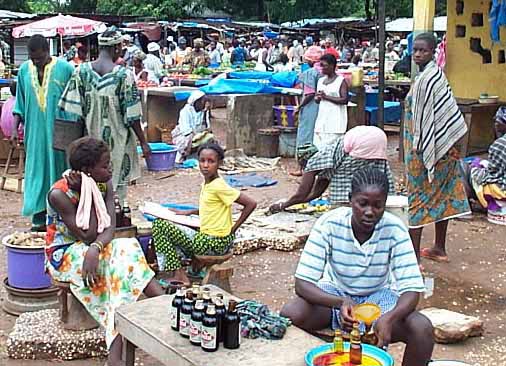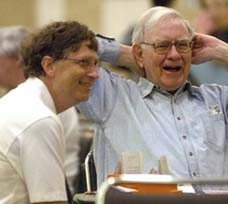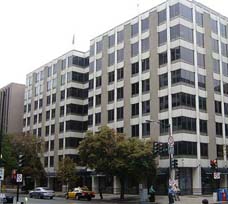2006.08.08: August 8, 2006: Headlines: COS - Burkina Faso: Asian American Issues: Peace Corps: Pei-Zei Lin serves as a Peace Corps Volunteer in Burkina Faso
Peace Corps Online:
Directory:
Burkina Faso:
Peace Corps Burkina Faso :
The Peace Corps in Burkina Faso:
2006.08.08: August 8, 2006: Headlines: COS - Burkina Faso: Asian American Issues: Peace Corps: Pei-Zei Lin serves as a Peace Corps Volunteer in Burkina Faso
Pei-Zei Lin serves as a Peace Corps Volunteer in Burkina Faso

“Everyone is surprised when they find out that I am American,” Lin said. However, the people she meets adjust to the shock and change their conceptions. For example, based on movies they have seen, many people gather that those who look Asian practice martial arts. “In Burkina Faso, people are intimidated by the way I look because I resemble Bruce Lee; and therefore, martial arts are ingrained in my genes,” she said The benefit of the misconception is that Lin’s students will instinctively pay attention for fear that she’ll unleash her “Jackie Chan” moves: it’s one fallacy that she’s not in a hurry to set straight.
Pei-Zei Lin serves as a Peace Corps Volunteer in Burkina Faso
Asian American Volunteer Refashions Image of Americans Abroad
In celebration of the 45th anniversary, this is the latest addition to our series of features on diverse Peace Corps volunteers.
WASHINGTON, D.C., August 8, 2006 – Images from 9/11 paint the vision of most Americans, from the smoke and panic to the rubble and tears. For Pei-Zei Lin, who worked in the building adjacent to the World Trade Center, the images of that morning are even more vivid and always fresh in her mind.
Yet within the midst and thoughts of devastation, she envisioned herself in another land, giving to those less fortunate, vowing to never again take life for granted. And it has been through the Peace Corps that Lin has sought to improve understanding of Americans, so such a tragedy would never befall her country again.
Lin, 27 and Asian-American, considers herself one thread in the tapestry of America. But when she traveled to Burkina Faso, she traded in a New York City life for one in which showers come in buckets and the shade of people is relatively universal.
“Everyone is surprised when they find out that I am American,” Lin said. However, the people she meets adjust to the shock and change their conceptions. For example, based on movies they have seen, many people gather that those who look Asian practice martial arts.
“In Burkina Faso, people are intimidated by the way I look because I resemble Bruce Lee; and therefore, martial arts are ingrained in my genes,” she said.
The benefit of the misconception is that Lin’s students will instinctively pay attention for fear that she’ll unleash her “Jackie Chan” moves: it’s one fallacy that she’s not in a hurry to set straight.
The melting pot of New York City looks nothing like the homogenous world in Burkina Faso where Lin stands out “like a red tomato in a bed of lettuce.” In the eyes of local villagers, Asian features signify more foreboding traits than they do in American culture. Along with the idea that all Asians can perform martial arts, Asians are generally believed to subsist on a diet of dogs, snakes, worms, and insects. But Lin is far from a carnivorous, mountain-dwelling martial artist.
She is a pioneer of women’s rights. She encourages parents to send their daughters to schools and husbands to allow their wives to work in small commerce. She also works with young boys, counseling them to be supportive of their female counterparts and assist the girls in school and sports.
Sports, especially, are an area in which Lin makes her benevolent presence felt. While she is a dedicated teacher by day, when the pencils are down, the nets come up.
When lessons are over at 5 p.m., Lin heads out to the volleyball court, an addition to the school for which she is responsible. She incorporates her love for volleyball with the passion to teach men that women have the skills to excel in sports. Extending this passion, Lin channeled the nationwide interest in soccer.
“I never played soccer, and I have never watched a soccer game in my life,” Lin admitted.
But that didn’t stop her from forming an all-girls team in her village, comprised of 13 to 23 year olds. She started the team because she felt the girls were not exercising enough and that the boys were not sharing their sporting glory. After gaining permission from the school director, a field was cleared of thorns, branches, and rocks to make a soccer pitch for the girls. The fondest memory Lin has of her Peace Corps experience was the middle school girls’ victory over a rival high school some 50 km away. As promised in the off chance that her team would win, Lin did a dance on the field to the amusement of the girls.
The volleyball, expanding power of a women’s movement, and cultural lessons are all part of her mission as a volunteer. Being a minority, Lin is able to show the diversity which comprises America, even if that’s not what her parents had in mind for her.
Like many minority volunteers, Lin’s family has struggled with her current career choice. Minority families often look at two years of service as backtracking. In some cases, minorities come from developing countries, and do not want their children to go back.
“The principal reason they came to America was to provide their child with an education and standard of living that surpasses what they can receive in their homeland,” Lin said of her parents. “They don’t understand that living and working in a developing country can teach volunteers to relate to their parents and ancestors and give them a better understanding of where they come from.”
“My Peace Corps service has helped me to become a better person,” Lin said. In the process of broadening the definition of American to her young students, she has become more open-minded and understanding of other cultures.
Currently, there are 102 volunteers serving in the West African country of Burkina Faso. Since the program’s start in 1966 over 1,280 have served there. Following an eight-year absence, Peace Corps volunteers returned to the nation in 1995, and assist communities in the areas of health, education and business development. All volunteers, regardless of sector, are trained in how to promote HIV/AIDS awareness. To learn more about Burkina Faso, please visit the Where Do Volunteers Go? section.
When this story was posted in August 2006, this was on the front page of PCOL:





Peace Corps Online The Independent News Forum serving Returned Peace Corps Volunteers
 | Peace Corps' Screening and Medical Clearance
The purpose of Peace Corps' screening and medical clearance process is to ensure safe accommodation for applicants and minimize undue risk exposure for volunteers to allow PCVS to complete their service without compromising their entry health status. To further these goals, PCOL has obtained a copy of the Peace Corps Screening Guidelines Manual through the Freedom of Information Act (FOIA) and has posted it in the "Peace Corps Library." Applicants and Medical Professionals (especially those who have already served as volunteers) are urged to review the guidelines and leave their comments and suggestions. Then read the story of one RPCV's journey through medical screening and his suggestions for changes to the process. |
 | Gates charity races to spend billions
Warren E. Buffett’s gift of $31 billion to the Bill and Melinda Gates Foundation means that for tax reasons, starting in 2009, the foundation must distribute $3 billion annually, or a little more than twice what it distributed last year.
PCOL Comment: The Foundation says that "preventing the spread of HIV is the most durable long-term solution to the AIDS epidemic, and a top priority for the foundation." Peace Corps Volunteers and Returned Volunteers have been doing just that in AIDS Education for the past 15 years. Why not consider a $100M annual contribution to the Peace Corps to put 2,500 additional volunteers in the field to expand AIDS education worldwide? |
 | The Peace Corps is "fashionable" again
The LA Times says that "the Peace Corps is booming again and "It's hard to know exactly what's behind the resurgence." PCOL Comment: Since the founding of the Peace Corps 45 years ago, Americans have answered Kennedy's call: "Ask not what your country can do for you--ask what you can do for your country. My fellow citizens of the world: ask not what America will do for you, but what together we can do for the freedom of man." Over 182,000 have served. Another 200,000 have applied and been unable to serve because of lack of Congressional funding. The Peace Corps has never gone out of fashion. It's Congress that hasn't been keeping pace. |
 | Changing the Face of Hunger
In his new book, Former Congressman Tony Hall (RPCV Thailand) says humanitarian aid is the most potent weapon the United States can deploy against terrorism. An evangelical Christian, he is a big believer in faith-based organizations in the fight against hunger. Members of Congress have recently recommended that Hall be appointed special envoy to Sudan to focus on ending the genocide in Darfur. |
 | PC will not return to East Timor in 2006
Volunteers serving in East Timor have safely left the country as a result of the recent civil unrest and government instability. Latest: The Peace Corps has informed us that at this time, the Peace Corps has no plans to re-enter the country in 2006. The Peace Corps recently sent a letter offering eligible volunteers the opportunity to reinstate their service in another country. |
 | Chris Dodd considers run for the White House
Senator Chris Dodd plans to spend the next six to eight months raising money and reaching out to Democrats around the country to gauge his viability as a candidate. Just how far Dodd can go depends largely on his ability to reach Democrats looking for an alternative to Hillary Clinton. PCOL Comment: Dodd served as a Volunteer in the Dominican Republic and has been one of the strongest supporters of the Peace Corps in Congress. |
 | Vasquez testifies before Senate Committee
Director Vasquez testifies before the Senate Foreign Relations Committee on his nomination as the new Representative to the United Nations Agencies for Food and Agriculture replacing Tony Hall. He has been the third longest serving Peace Corps Director after Loret Ruppe Miller and Sargent Shriver. PCOL Comment: Read our thanks to Director Vasquez for his service to the Peace Corps. |
 | Peace Corps stonewalls on FOIA request
The Ashland Daily Tidings reports that Peace Corps has blocked their request for information on the Volkart case. "After the Tidings requested information pertaining to why Volkart was denied the position — on March 2 — the newspaper received a letter from the Peace Corps FOIA officer stating the requested information was protected under an exemption of the act." The Dayton Daily News had similar problems with FOIA requests for their award winning series on Volunteer Safety and Security. |
 | PCOL readership increases 100%
Monthly readership on "Peace Corps Online" has increased in the past twelve months to 350,000 visitors - over eleven thousand every day - a 100% increase since this time last year. Thanks again, RPCVs and Friends of the Peace Corps, for making PCOL your source of information for the Peace Corps community. And thanks for supporting the Peace Corps Library and History of the Peace Corps. Stay tuned, the best is yet to come. |
 | History of the Peace Corps
PCOL is proud to announce that Phase One of the "History of the Peace Corps" is now available online. This installment includes over 5,000 pages of primary source documents from the archives of the Peace Corps including every issue of "Peace Corps News," "Peace Corps Times," "Peace Corps Volunteer," "Action Update," and every annual report of the Peace Corps to Congress since 1961. "Ask Not" is an ongoing project. Read how you can help. |
 | RPCV admits to abuse while in Peace Corps
Timothy Ronald Obert has pleaded guilty to sexually abusing a minor in Costa Rica while serving there as a Peace Corps volunteer. "The Peace Corps has a zero tolerance policy for misconduct that violates the law or standards of conduct established by the Peace Corps," said Peace Corps Director Gaddi H. Vasquez. Could inadequate screening have been partly to blame? Mr. Obert's resume, which he had submitted to the Peace Corps in support of his application to become a Peace Corps Volunteer, showed that he had repeatedly sought and obtained positions working with underprivileged children. Read what RPCVs have to say about this case. |
 | Why blurring the lines puts PCVs in danger
When the National Call to Service legislation was amended to include Peace Corps in December of 2002, this country had not yet invaded Iraq and was not in prolonged military engagement in the Middle East, as it is now. Read the story of how one volunteer spent three years in captivity from 1976 to 1980 as the hostage of a insurrection group in Colombia in Joanne Marie Roll's op-ed on why this legislation may put soldier/PCVs in the same kind of danger. Latest: Read the ongoing dialog on the subject. |
Read the stories and leave your comments.

Some postings on Peace Corps Online are provided to the individual members of this group without permission of the copyright owner for the non-profit purposes of criticism, comment, education, scholarship, and research under the "Fair Use" provisions of U.S. Government copyright laws and they may not be distributed further without permission of the copyright owner. Peace Corps Online does not vouch for the accuracy of the content of the postings, which is the sole responsibility of the copyright holder.
Story Source: Peace Corps
This story has been posted in the following forums: : Headlines; COS - Burkina Faso; Asian American Issues
PCOL34046
14

























